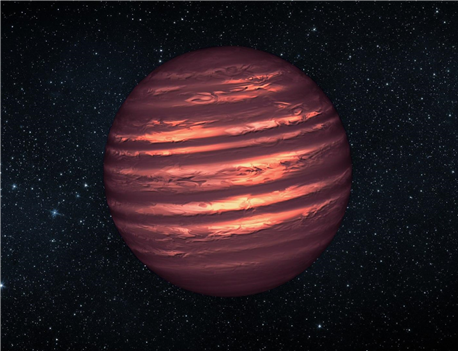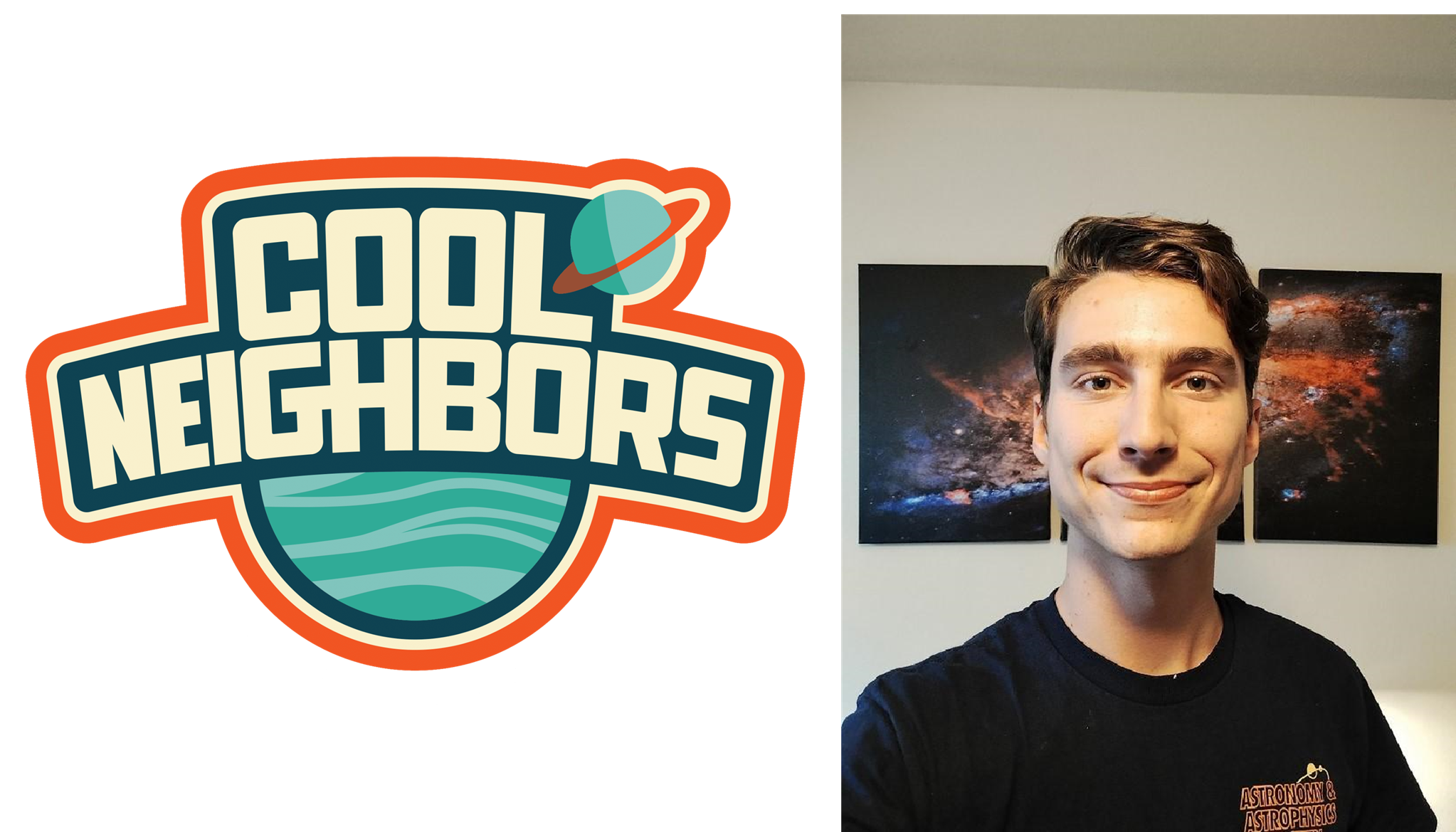“With the power of machine learning and AI, we were able to present a project where we can explore the universe collaboratively, no experience required!” – Grady Robbins
Grady Robbins (he/him), an undergraduate student pursuing astrophysics at the University of Florida (UF) and a summer intern at the National Science Foundation’s (NSF) NOIRLab, played a vital role as a primary developer in the recently launched NASA-funded project, Backyard Worlds: Cool Neighbors. This groundbreaking project focuses on the discovery of brown dwarfs, intriguing celestial objects that emit infrared light but are not hot enough to sustain hydrogen fusion like stars. They resemble massive Jupiters drifting alone in space and hold significant potential for expanding our knowledge of exoplanet atmospheres, star formation, and compound prevalence in our galaxy.

An artist’s conception of a brown dwarf (Credit: NASA/JPL-Caltech)
The atmospheres of brown dwarfs exhibit striking similarities to those of giant exoplanets but can be studied in detail without the interference of a brighter host star. These atmospheres display distinct signatures of water and methane, essential molecules for the development of organic compounds observed on Earth. Some brown dwarfs may even be rogue planets that were ejected from their original star systems!
The Backyard Worlds: Cool Neighbors project harnesses the power of machine-learning algorithms and Artificial Intelligence to analyze nine years’ worth of WISE infrared telescope images. By leveraging cutting-edge deep learning techniques, the project identifies potential moving objects, namely brown dwarfs, within our solar neighborhood. Project contributors are then presented with a flipbook-style video of these candidate “movers” and are tasked with determining their presence. While the AI is adept at narrowing down potential candidates, user input remains crucial in ensuring accurate identification, as the AI can occasionally be misled by factors such as noise and artifacts in the images.

The Cool Neighbors logo designed by Matteo Gulla (left) and Grady Robbins (right).
UF astrophysics major Grady Robbins joined the Cool Neighbors project in May 2023, at a crucial phase following the completion of its beta test. Collaborating closely with esteemed astronomer Dr. Aaron Meisner and experienced intern Austin Humphreys, Grady played a pivotal role in developing the primary code used to analyze project results as well as leading project promotion at launch. With the project’s successful launch on June 27th, he and the Cool Neighbors Team are poised to contribute to the discovery of hundreds, if not thousands, of new brown dwarfs.
UF’s Astronomy Department is committed to fostering an environment that encourages students like Grady to seize research and volunteer opportunities.
Elizabeth Lada, Chair of UF Astronomy explained, “We have an amazing group of undergraduate majors who want to experience research first hand! Their enthusiasm for research in astronomy and astrophysics is not only contagious but also inspiring. One of our most important missions is to empower these students to pursue their passions and prepare for future careers in astronomy, astrophysics and beyond.”
There are many ways that the department supports student research. First, UF faculty provide students with exciting research opportunities to explore. The department also provides platforms, such as symposia and talks, for students to showcase their research and gain valuable experience as speakers. Students are supported to attend scientific meetings to present their research. As the student body continues to grow, new astronomy clubs are emerging. Just last year, a new astronomy club focused on increasing undergraduate research involvement was founded under the name PULSAR (Promoting Undergraduate Learning and Studies in Astrophysics Research) by Grady and the Astronomy Department Chair Elizabeth Lada. This reflects the department’s commitment to fostering a vibrant community of aspiring astronomers.
“UF’s Astronomy Department has played a crucial role in shaping my journey by encouraging me to engage in research and volunteer opportunities. Thanks to the staff, I feel well-prepared for my future pursuit of graduate school.” – Grady Robbins
Outside of the Backyard Worlds: Cool Neighbors project, Grady actively engages in research under the guidance of Dr. Jaehan Bae, investigating protoplanetary disks. Additionally, he is an officer of UF’s Astronomy and Astrophysics Society, further fueling his passion for the field. With aspirations of pursuing a doctorate and making a name for himself in space sciences, he remains dedicated to his journey.
Grady’s involvement in the Backyard Worlds: Cool Neighbors project is a fantastic example of the opportunities provided by UF’s Astronomy Department. By nurturing students’ talents and ambitions, the department supports their growth and prepares them for future success. As the department continues to expand its offerings and highlight the accomplishments of its students, it remains committed to fostering a thriving community that propels astronomy forward.
To join the first-ever targeted citizen science search for brown dwarfs yourself, you can navigate to the Backyard Worlds: Cool Neighbors homepage at http://coolneighbors.org and click the “CLASSIFY” tab to view the tutorial and begin searching or click the “ABOUT” tab to learn more about the project. Your findings could even end up in a research paper or be observed by the James Webb Space Telescope!